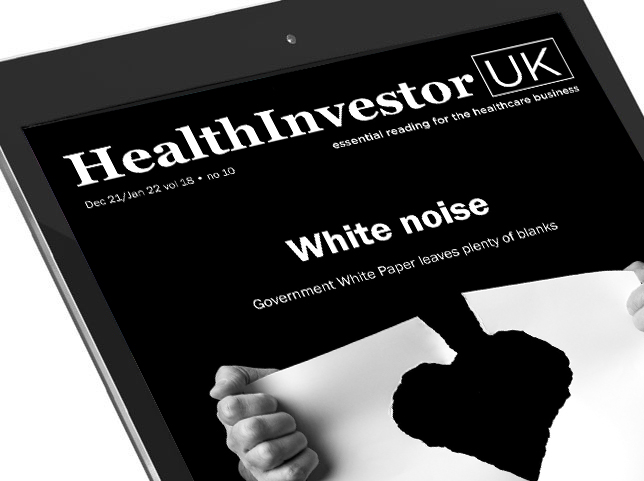Putting out the fire with gasoline?
As we go to press, health secretary Matt Hancock has announced the demise of Public Health England, a move predicted in our last editorial. While there were many flaws in the way PHE was run and it undoubtedly could have done better in managing the Covid-19 pandemic which still threatens to engulf us, there are some who feel justified in attributing Mr Hancock’s move to a desire to shift blame for the whole sorry mess away from himself, the prime minister and his cabinet colleagues.
The decision to scrap a vital fighting force in the battle to protect the population from the virus in the middle of the outbreak has been likened to restructuring the fire brigade at the precise moment their hoses are trained on a blazing building.
The interim appointment of Baroness Dido Harding to head up PHE’s replacement, the National Institute of Health Protection, has further added to the general bafflement and irritation at Hancock’s seemingly precipitous plans. Richard Horton, the editor of the Lancet medical journal, summed up the mood of the medical establishment when he tweeted: “It’s difficult to understand how someone with zero public health qualifications has been appointed to lead a national public health agency.”
The Baroness certainly has a mammoth task on her hands and one can only admire the confidence that led her to accept a role for which so few people believe she is suitable.
Let us consider the landscape in which she finds herself.
Britain has the worst total Covid-19 death toll in Europe, with more than 46,000 killed by the virus. The UK also suffered the Continent’s second-worst “excess death” rate per head of population – twice that of France and eight times more than in Germany.
We did not protect our elderly population, the most likely to suffer serious illness, who died in nursing homes in shocking numbers.
We let Covid-19 run riot across the land rather than imposing local restrictions that proved so effective elsewhere.
We failed to restrict travel into the country from abroad, we gave up on contact tracing too early, set testing targets that were missed, designed government programmes that didn’t work and the three most senior figures managing the effort to control the disease, including the prime minister, caught the very virus they were fighting.
Now the country faces the deepest recession since records began. The Office for National Statistics said earlier this month that there had been a dramatic plunge in output across the services, production and construction industries in the first quarter of 2020.
In sobering language, the ONS says the pandemic has erased 17 years of economic growth in just six months. The level of the UK’s GDP is back to what it was in June 2003.
On a more positive note, while infections may rise in the general population, the rates of hospitalisation and ICU beds occupied are gratifyingly low. The UK is also leading the way in developing a vaccine to protect against the virus and led research that uncovered the effectiveness of dexamethasone treatment.
Only time will tell if Matt Hancock’s new Institute and its leader will prove up to the task of the long-term management of a health crisis that looks as if it will persist well into next year and possibly beyond.





